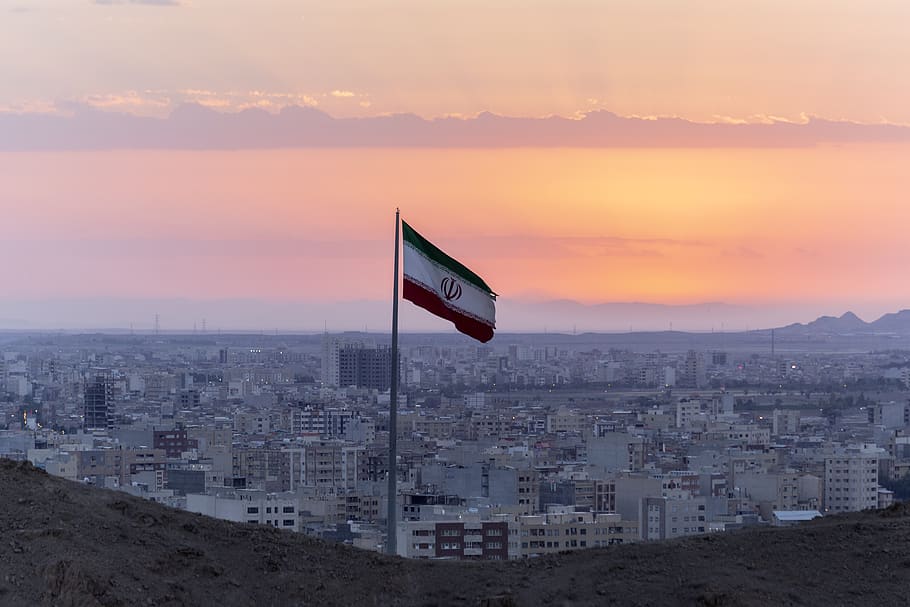Western attitudes to Iran have yet to change
In looking at the current tragic events unfolding in Iran, it is probably best to ‘walk back the cat’ as it is said in Washington DC. It is important to observe both the recent and distant past of the issue in order to perhaps begin to better understand why President Trump is orchestrating this debacle now.
Iran has practiced a wish list of human rights abuses. Significantly, the case of the British national Nazanin Zaghari-Ratcliffe and her detention, torture, and virtual annulment of human rights since 2016. International tensions also flared in September 2019, when Iran seized British merchant tankers in the Strait of Hormuz. The downing, by the Iranian military, of the Ukrainian passenger jet last week led to Iran losing all credibility on the international sphere. Hence, the Foreign Secretary Dominic Raab’s statement to the House on the 14th of January about the E3 (UK, France, and Germany) formally the triggering dispute resolution mechanism on the JCPOA, comes as no surprise.
I can only hope that one day in the future a ‘Marjane Satrapi’ figure will write about this situation in a new ‘Persepolis’- shining light on what it is actually like to be on the other side of the sandstone wall.
On May 1st 2003, amid patriotic pomp, US President George W. Bush lands on the USS Abraham Lincoln, speaking under the iconic banner reading: “Mission Accomplished”. Onboard the battleship he delivered one of the most significant speeches of his presidency. It is easy to sneer at the apparent ‘Hollywoodesque’ atmosphere, but what was actually uttered by the President is of far greater import. Bush painted the coalition’s mission as a humanitarian and righteous endeavour that would secure democracy and peace in the region. Seventeen years later in the White House, while stumbling through his words, President Trump said much the same thing about US involvement in the aftermath of the Qassem Soleimani affair, only this time with the Joint Chiefs of Staff (JCS) and Vice President Pence hovering around him.
How is it possible that after nearly two decades of continuous war in the Middle East the essential view of the President of the United States hasn’t changed?
What makes these two speeches notable in understanding the current situation in Iran is that both Republican presidents held the same view. This then begs the question of how? How is it possible that after nearly two decades of continuous war in the Middle East the essential view of the President of the United States hasn’t changed? After all, the enemy in this picture has changed multiple times.
The President referenced the 1979 US embassy siege in Tehran, which practically ruined Jimmy Carter’s presidency. Predictably, he did not mention the 1953 coup d’état orchestrated by Eisenhower’s CIA which replaced a democratically elected Prime Minister, Mohammad Mossadegh, with the autocratic Shah. Documents released in 2013 by the CIA show the deep level of US involvement in overthrowing Mossadegh.
The United States government had a chance in the 20th century to create, or rather support, the society in Iran that it now seems to desperately want. After reciprocating the recent threats of the Iranian President, Hassan Rouhani, President Trump offered a message of peace stating that: “We want you to have a future, and a great future… of prosperity at home and harmony with the nations of the world”.
Overall however, President Trump’s words echo what the fourth stanza of Rudyard Kipling’s ‘Recessional’ feared – when an empire is in dire straits:
If, drunk with sight of power, we loose
Wild tongues that have not Thee in awe,
Such boastings as the Gentiles use,
Or lesser breeds without the Law.
With “big missiles” at the ready, with the US economy as a deterrent, compounded by the tragic downing of the Ukrainian airliner, and the chaos resulting from the assassination of General Soleimani, a collective amnesia is taking control. This panoply of crisis has freed the ‘wild tongues’ of Iran and the United States, only for the worse. It is difficult to believe that less than a month ago, on 18 December 2019, the decade ended with the House of Representatives voting to impeach, putting President Trump in a clubhouse with Andrew Johnson and Bill Clinton.
A collective amnesia is taking control
President Trump openly denied that this Iran Crisis was caused by US interest in the region’s oil saying that “we do not need Middle East oil”. However, growing tensions with Russia over the supply of Liquefied Natural Gas (LNG) and international tensions in the eastern Mediterranean concerning the EastMed pipeline, show there is some game being played here. Even so, a day after president Clinton was supposedly impeached by the House of Representative, he ordered the infamous air strike against Saddam Hussein’s Iraq, forcing the impeachment vote to be moved a couple of days forward. Perhaps President Trump is loosely following his Democrat predecessor’s tactics.
This crisis in Iran is evolving at such a galloping pace that its jockeys may be thrown off. The United States’ motives are just, and are mostly aligned with the high principles of the United Nations. However, the means by which these motives are being pursued openly shun history. To speculate the possibility of a full-scale war at this point is naïve. However, from the Persians to the Iranians, conflicts in that region have displayed that they rarely end well for the invading force.

Comments